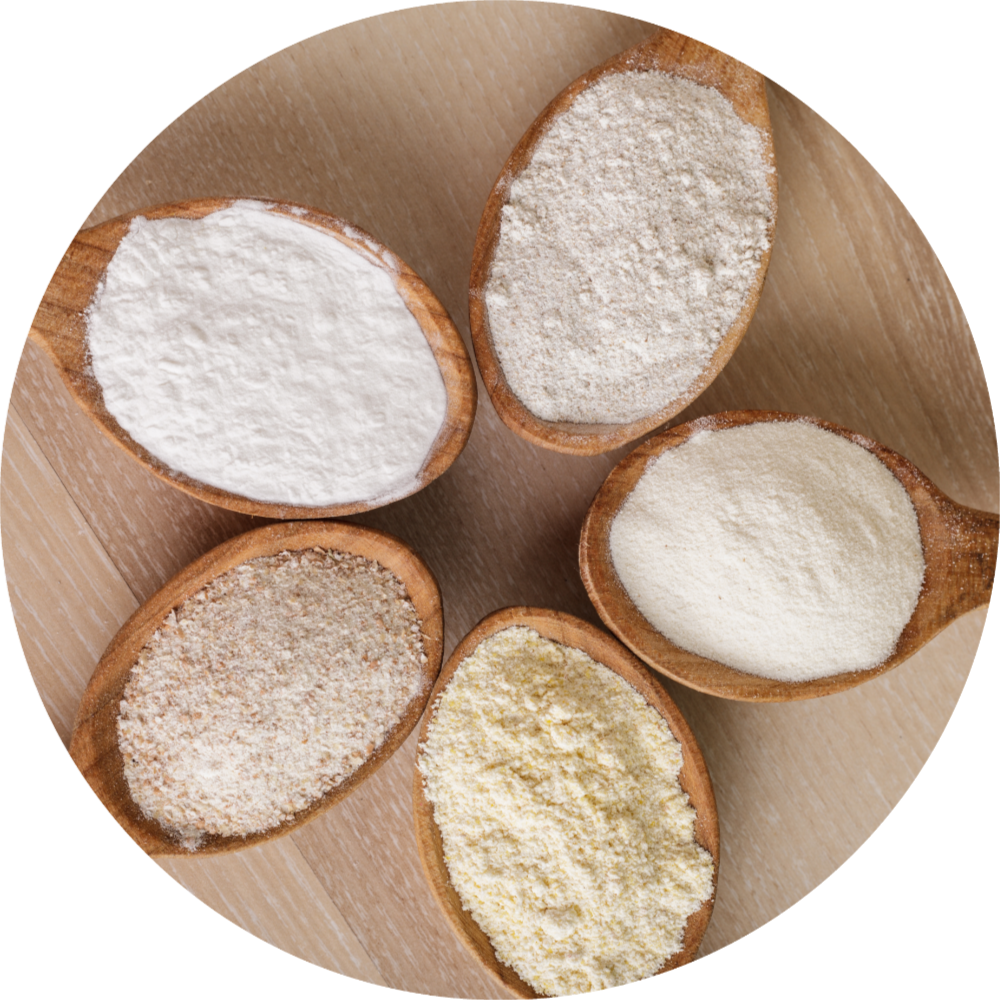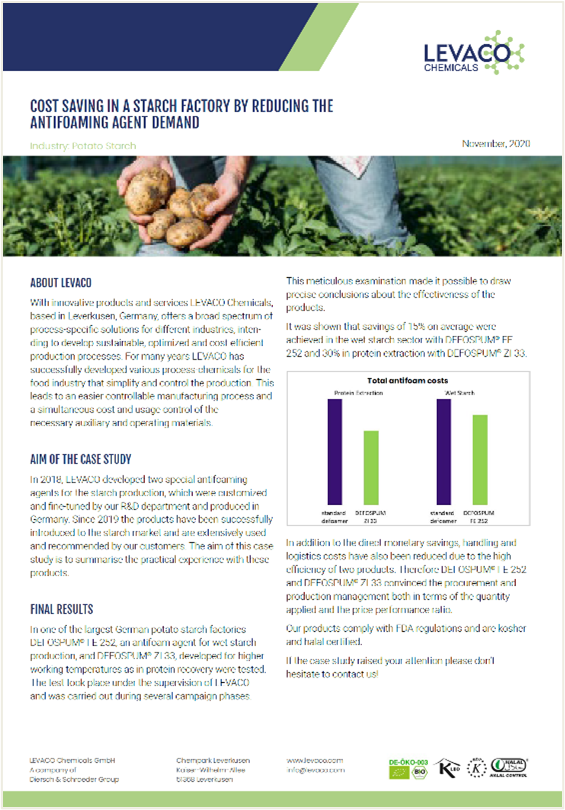Starch Industry
Starch industry
The demand of the food and paper industry for starch as a basic ingredient is ever-growing. Natural fibres and proteins are also becoming more and more valuable and lucrative side-products of starch producers.
Starch is produced by processing different raw materials like potato, wheat, corn, peas and tapioca. All factories processing these raw materials face foaming issues at the starch extraction and protein recovery steps, while potato processing imposes even more challenges to overcome foaming problems.
| Product | Temperature range |
|---|---|
| DEFOSPUM® RWK | 5-25°C |
| DEFOSPUM® FE 252 | 20-100°C |
| DEFOSPUM® SI 90 K | 20-100°C |
| DEFOSPUM® Bio | 5-100°C |
| DEFOSPUM® ZI 33 | 40-120°C |
Preparation of the raw material and rasping
DEFOSPUM® antifoaming agent for
- Low temperatures (5-20°C)
- Inhomogen mixture of pulp, juice, starch
Before processing, potatoes have to be washed to remove soil, dirt and other impurities by washing through a water channel. Then potatoes are peeled and cut by a saw blade rasp and mill grinded (rasping) to open the tuber cells and release the starch granules. The result is a mixture of pulp, potato juice and starch. Turbulence, starches and proteins are causing foaming issues, which can limit factory throughput and reduce process reliability. The process is typically rather cold (5-20°C), so an appropriate DEFOSPUM® antifoaming agent is used to destroy existing foam and inhibit the formulation of new foam.
Wet starch processing and extraction
DEFOSPUM® antifoaming agent for
- Medium / high temperatures (40-70°C)
- Wet starch process of cooking and screening
As the raw material is cooked in several steps starch is leaving and is extracted. Multiple screening steps separate the starch from the pulp, which can be reprocessed. Starch isolated by the screens or sieves is reslurried in water to remove soluble material and then dewatered in continuous centrifuges. In the 40-70°C processes of cooking and screening a DEFOSPUM® antifoaming agent should be applied to control foaming effectively.
Protein recovery
DEFOSPUM® antifoaming agent for
- High temperatures (50-90°C)
- Precipitation combined with heat treatment
Potato and other juices are complex mixtures of several components, making them a challenging feedstock for protein isolation. Undiluted juice contains up to 5% dry matter, and around 20-25% of this dry matter is protein. Industrial proteins are generally separated through three processes: Precipitation by adjusting physical properties of the solution, membrane separation and chromatographic separation. These processes are used both separately and in combination. Typically, precipitation is preferred for proteins for feed/ food use and is often combined with heat treatment in the range of 50-90°C. During the separation processes, foaming can occur and a DEFOSPUM® antifoaming agent specially designed for high temperatures is selected.
DEFOSCALE® against scaling
Scaling prevents an effective heat transfer, resulting in increased energy costs. DEFOSCALE® prevents the formation of scaling in heat exchangers and evaporators, reducing energy consumption and saving CO2 and costs.
DEFOCLEAN® for plant cleaning
Chemical cleaning processes are used to remove organic and inorganic deposits. DEFOCLEAN® optimizes these processes. This makes the processes more effective and cost-efficient.

Click here for brochures and case studies
To learn more about practical experiences with our processing aids for the food industry please check our case studies:


